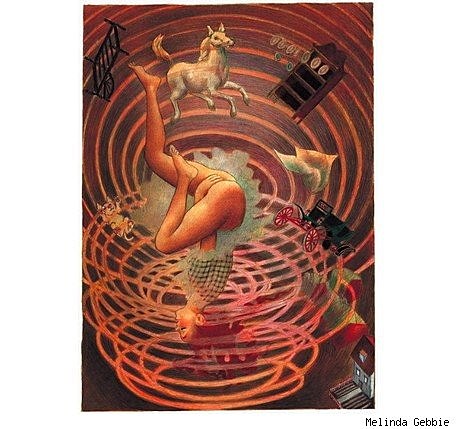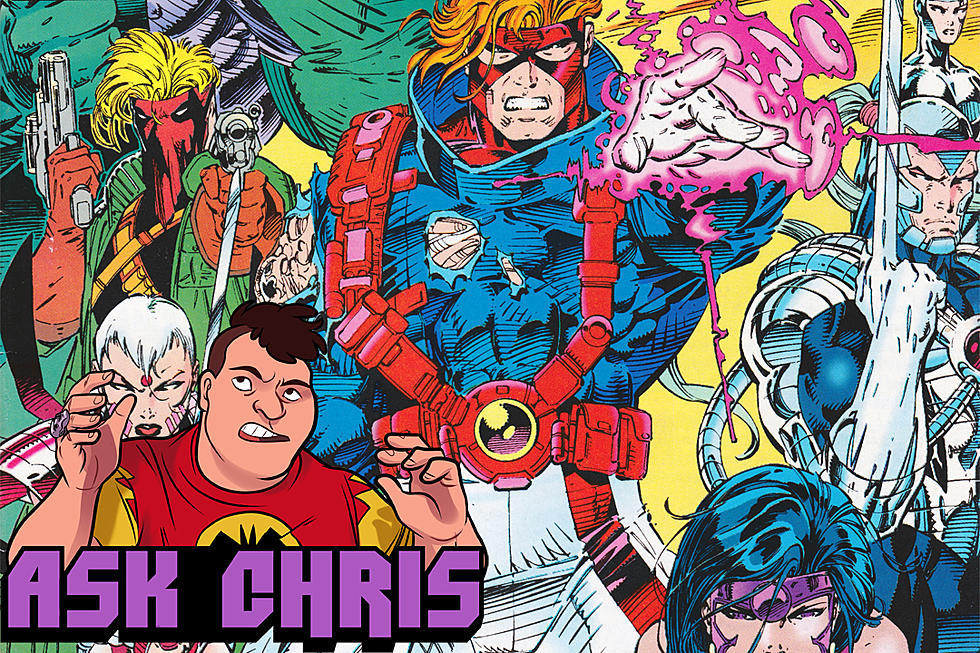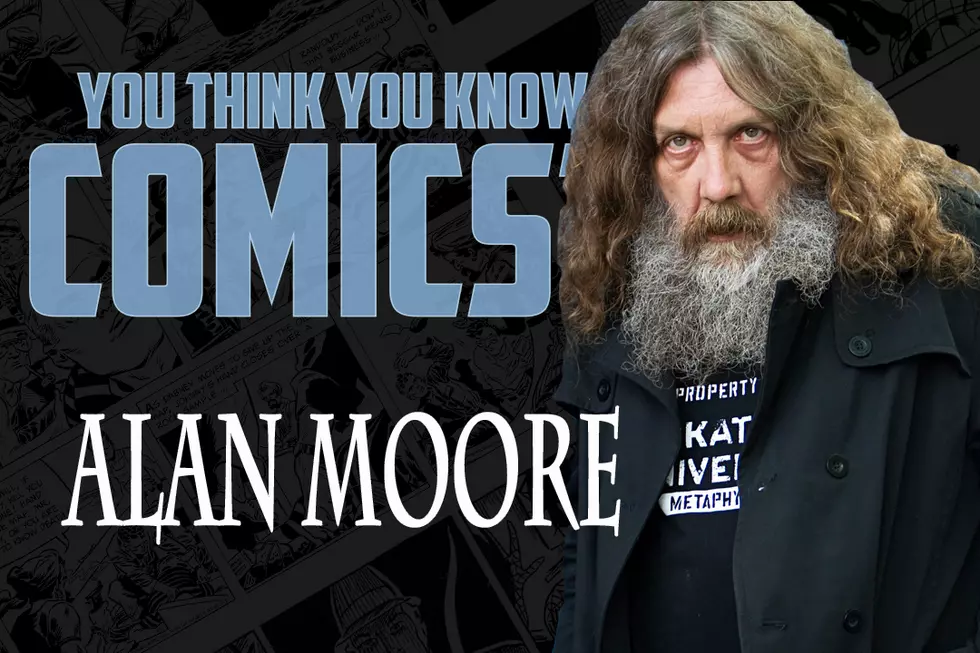
Porn, Women, and the Problems with Alan Moore’s ‘25,000 Years of Erotic Freedom’
 I should start out by stating that I'm one of those openly sexual people. Perhaps it's my disdain for pants, or the corruption of my spirit by lesbians and marijuana users at a liberal arts college, but I'm genuinely interested in pornography.
I should start out by stating that I'm one of those openly sexual people. Perhaps it's my disdain for pants, or the corruption of my spirit by lesbians and marijuana users at a liberal arts college, but I'm genuinely interested in pornography.
So when Alan Moore publishes a book-length essay about the history of naughty art, I'm all over it like a bitch in heat.
Too much? Too bad. It's an article about porn, so get used to it.
"25,000 Years of Erotic Freedom" is a nice read, brimming with Moore's touch-in-cheek, anti-establishment humor. But while the title suggests that the reader will be provided with a comprehensive overview of erotic art, save for the Katsushika Hokusai woodblock prints, the book is strictly an overview of Western pornography.
Moore basically spends the entire book complaining that no one takes porn seriously anymore, and while I neither doubt his sincerity, nor can argue that his point isn't somewhat valid (especially in what seems like a never-ending super-highway of porno misogyny), I can't help but think it's an 89-page argument trying to convince us that Moore's "Lost Girls" was actually a wonderful re-exploration of modern sexual literature, and not a book tried way too hard to be a homage to the Victorian era rather than actually getting people all hot and bothered in their bloomers.(NSFW: Do you find this sexy?)

Moore's thoughts on pornography tend to move between the very enjoyable poles of entertaining history, like the first live sex shows at private theaters where musical members of the audience could play along to the action, and speculative analysis, like when he suggests that rape became a more prominent component of pornography due to sexual conversation's banishment from acceptable society.
But a point that hits more off-center is Moore's suggestion that pornography could lower rates of sexual assault, when seen as an acceptable type of safety-value for releasing sexual pressure in society. It's not that this idea is inherently incorrect, but that it's an oversimplified remedy for a pervasive and complex problem.
And because it's Moore, there is the occasional blatant remark like:
"Sexually progressive cultures gave us mathematics, literature, philosophy, civilization, and the rest, while sexually restrictive cultures gave us the Dark Ages and the Holocaust."
-Alan Moore, 25,000 Years of Erotic Freedom, page 39.
"25,000 Years of Erotic Freedom" isn't flawless by any means, but one of the most interesting arguments he makes is that the distribution of modern pornography, especially via the Internet, keeps realistic sexual desires repressed by boxing them only into the seemingly shameful, private act of masturbation and limiting hardcore sexual content to that single dimension.
In the end, Moore believes that higher standards for erotic material could have resonating benefits, but thinks the Internet is only making this goal less and less achievable. Which is too bad, because while the Internet may have lowered the standards for pornography, it has also given those with talent a platform for a wider audience than ever before, like artist Jess Fink. (NSFW)

Throughout the book, Moore criticizes society for not having higher standards for pornography, but as usual when pornography is involved, not only are female pornographers left out this history lesson, but he never addresses the fact that there is still a group that is selective about its sexual material: women. No, not every trashy romance novel is an example of masterful art, especially when vampires are involved, but by and large pornography targeted to, and made by, women is of a higher caliber than its male counterpart.
So while Moore argues for higher artistic standards in pornography generally, I would argue that until women are included as a target demographic for sexual content, standards will remain horribly low.
Now if you'll excuse me, I have to do more research using the Boolean logic "spanking + dildo ~anal"
More From ComicsAlliance









